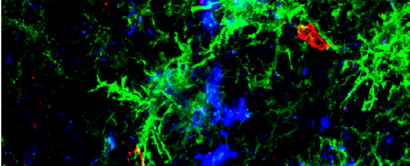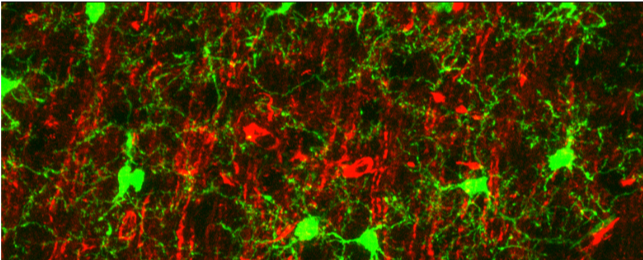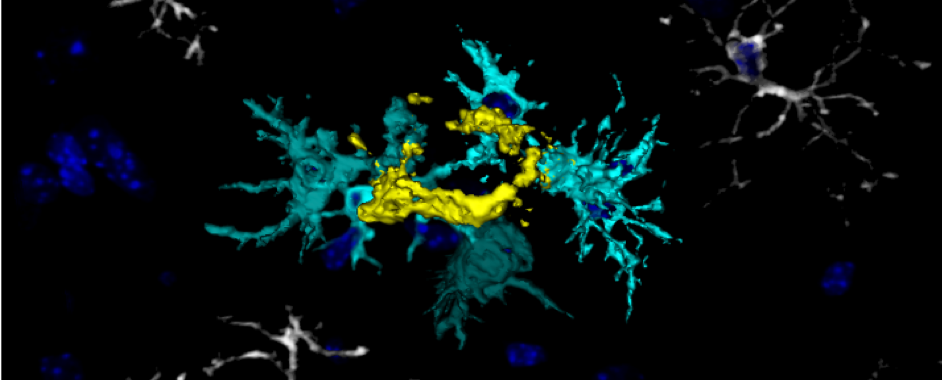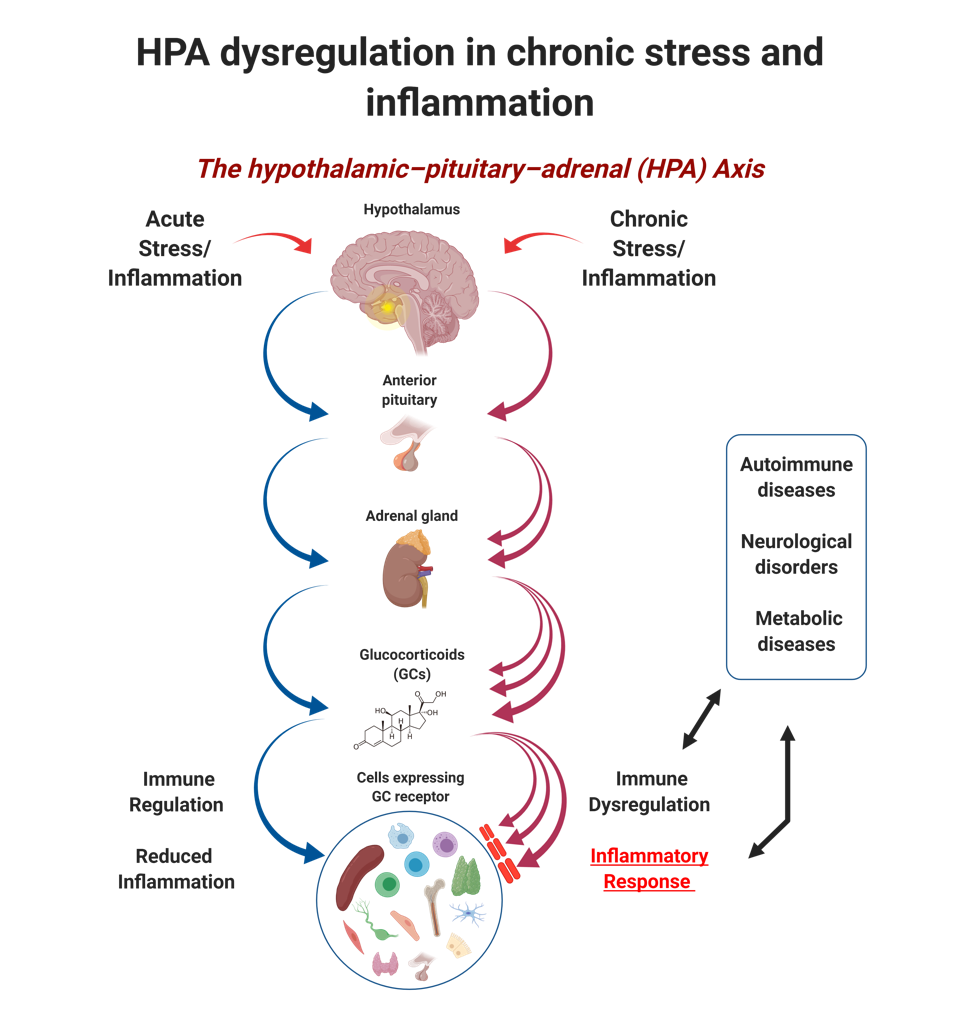


About Us
Both the brain and the immune system begin their journey with a learning process, directly linked to the environmental settings, to ultimately generate memory and execute effector functions; many of these functions control body homeostasis and are co-regulated throughout life. The implication of immune regulation in many disorders is thus a fast-emerging field as it holds a great promise in disease prevention, early diagnosis and treatment. Studies in my laboratory focus on exploring the interactions between the brain and the immune system from early development to aging in human and in animal models. Our goal is to provide better tools to fight autoimmune, psychiatric and neurodegenerative diseases, conditions with ever-growing social and financial costs
Immune cell residence and function within the central nervous system.
Immune cells begin to populate the central nervous system (CNS) already during embryonic development. The cells, termed microglia (macrophages of the CNS), become permanent residents of the tissue with a variety of functions such as clearance of pathogens and regulation of neuronal function. We address questions related to their unique functional properties within the CNS as well as their impact on chronic diseases of the brain such as epilepsy, obesity, amyotrophic lateral sclerosis, Crohn’s disease, and Alzheimer’s disease.


Immune mechanisms in aging, longevity, and age-related diseases
Various age-related diseases such as dementia, cancer, diabetes, and heart diseases are characterized by declined repair along with dysregulated inflammation. Our studies reveal trajectories of immune system aging which contribute to changes in the immune ecosystem and thereby manifested either as healthy aging or accumulated tissue damage and various pathologies.
Mechanisms of stress-induced pathogenic autoimmunity and neuroinflammation.
Chronic stress may alter the homeostatic functioning of the gut-immune-brain axis. Such imbalance may then exacerbate or predispose to chronic illnesses such as depression, autoimmunity, and neurodegenerative diseases. Current projects explore cellular and molecular mechanisms underlying the biology of stress-induced gut and brain pathologies.


3D transplantable scaffolds for immune modulation in autoimmune diseases.
Although the etiology of autoimmune diseases is mostly unknown, it is becoming clear that a loss in immune regulation results in pathogenic stimulation of autoreactive lymphocytes which otherwise kept quiescent. Once such pathogenic stimulation of lymphocytes occurs, the cells can renew and continuously attack the body. Our research, in collaboration with Prof. Smadar Cohen, is aimed at generating transplantable lymphoid-like scaffolds which attenuate the function of pathogenic T cells and hence allow to preserve essential tissue functions.
Alon Monsonego
Alon Monsonego, PhD
Professor, Lab of Neuroimmunology
Lawrence W. and Marie Feldman Chair in Neurophysiology
Deputy Vice Dean for Academic Promotion
The Shraga Segal Dept. of Microbiology, Immunology and Genetics
The Faculty of Health Sciences &
The National Institute of Biotechnology in the Negev
School of Brain Sciences and Cognition
Regenerative Medicine and Stem Cell Research Center
Ben-Gurion University
P.O.B. 653
Beer-Sheva 84105
Israel
Tel: +972-(0)8-647-9052
Fax: +972-(0)8-647-9051
Email: alonmon@bgu.ac.il
http://fohs.bgu.ac.il/monsonegolab
Selected Publications:
- Cognitive behavioral and mindfulness with daily exercise intervention is associated with changes in intestinal microbial taxa and systemic inflammation in patients with Crohn’s disease.
- CD4 T-cell aging exacerbates neuroinflammation in a late-onset mouse model of amyotrophic lateral sclerosis.
- Brain-immune axis regulation is responsive to cognitive behavioral therapy and mindfulness intervention: Observations from a randomized controlled trial in patients with Crohn’s disease.
- Thymus involution sets the clock of the aging T-cell landscape: Implications for declined immunity and tissue repair.
- Aging promotes reorganization of the CD4 T cell landscape toward extreme regulatory and effector phenotypes.
- CD4 T Cells Induce A Subset of MHCII-Expressing Microglia that Attenuates Alzheimer Pathology.
- BDNF-producing, amyloid β-specific CD4 T cells as targeted drug-delivery vehicles in Alzheimer’s disease.
- The Choroid Plexus Functions as a Niche for T-Cell Stimulation Within the Central Nervous System.

